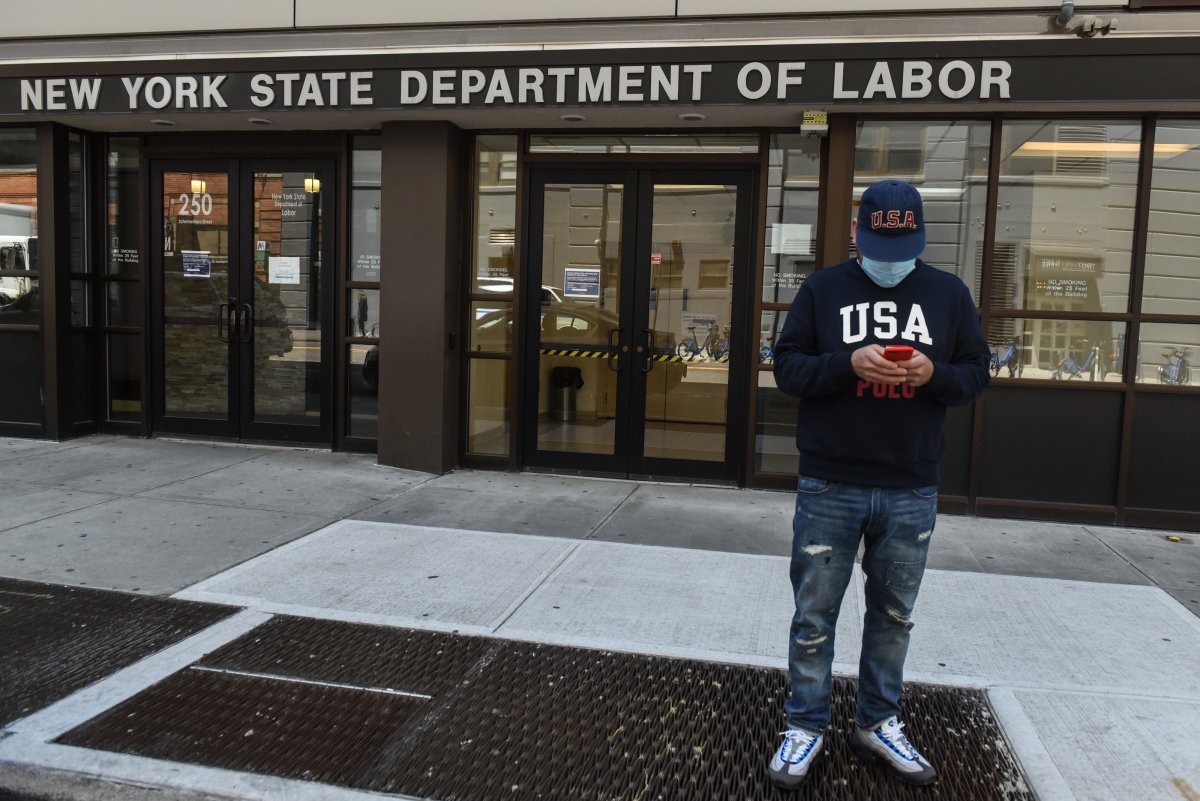A Congressional Budget Office (CBO) report on Friday forecasts a rise in U.S. unemployment from the current 3.9 percent to 4.4 percent by the end of 2024, signaling potential job losses for millions amidst a contracting gross domestic product (GDP).
The projected increase in unemployment, affecting an estimated 7.4 million Americans within the workforce, will come amidst economic adjustments and policy shifts, the CBO said in its "Current View of the Economy From 2023 to 2025" report.
The nonpartisan office said it expects weaker consumer spending into next year, as well as a contraction in nonresidential investment, which will cause deceleration in the economy, with real GDP growth slowing down from 2.5 percent this year to 1.5 percent in 2024.
Current jobless claims support the CBO's outlook, with around 202,000 new unemployment benefits filed in early December, and approximately 1.87 million workers continuing to claim unemployment benefits, indicating a tightening labor market.
Newsweek reached out to the Congressional Budget Office via email for comment.
The Federal Reserve's own forecasts nearly align with the CBO's projections, anticipating economic growth to slow down to 1.4 percent in 2024, before picking up pace in subsequent years. The Fed's projection for the unemployment rate is optimistic compared to the CBO, forecasting a rise to 4.1 percent by the end of next year.
In response to slowing inflation and rising unemployment, the CBO said in its report that the Fed will begin to cut interest rates some time after March of next year. Specifically, the nonpartisan office said inflation, as measured by the personal consumption expenditures (PCE) price index, will fall to 2.1 percent, aligning closer to the Fed's target rate of 2 percent.
The CBO's updated projections suggest a more subdued economic outlook compared to its February predictions, saying it now has a "slower-than-projected growth in consumption, investment, and exports."

Does That Mean a Recession Is Coming?
LPL financial chief equity strategist Jeffrey Buchbinder told Newsweek last week that once the Fed begins to cut rates, the central bank has already gone too far and a recession is either coming, or already started.
"The Fed will cut rates because it worries monetary policy is too restrictive for a weakening economy," Buchbinder shared with Newsweek prior to the Fed's decision to hold rates at 5.25 percent to 5.5 percent. "The central bank's goal remains a soft landing, and their spotty track record in achieving that goal does not mean a hard landing is necessarily in the cards."
However, the equity strategist noted that if a recession does come next year, it will likely be mild.
Uncommon Knowledge
Newsweek is committed to challenging conventional wisdom and finding connections in the search for common ground.
Newsweek is committed to challenging conventional wisdom and finding connections in the search for common ground.
About the writer
Aj Fabino is a Newsweek reporter based in Chicago. His focus is reporting on Economy & Finance. Aj joined Newsweek ... Read more
To read how Newsweek uses AI as a newsroom tool, Click here.








